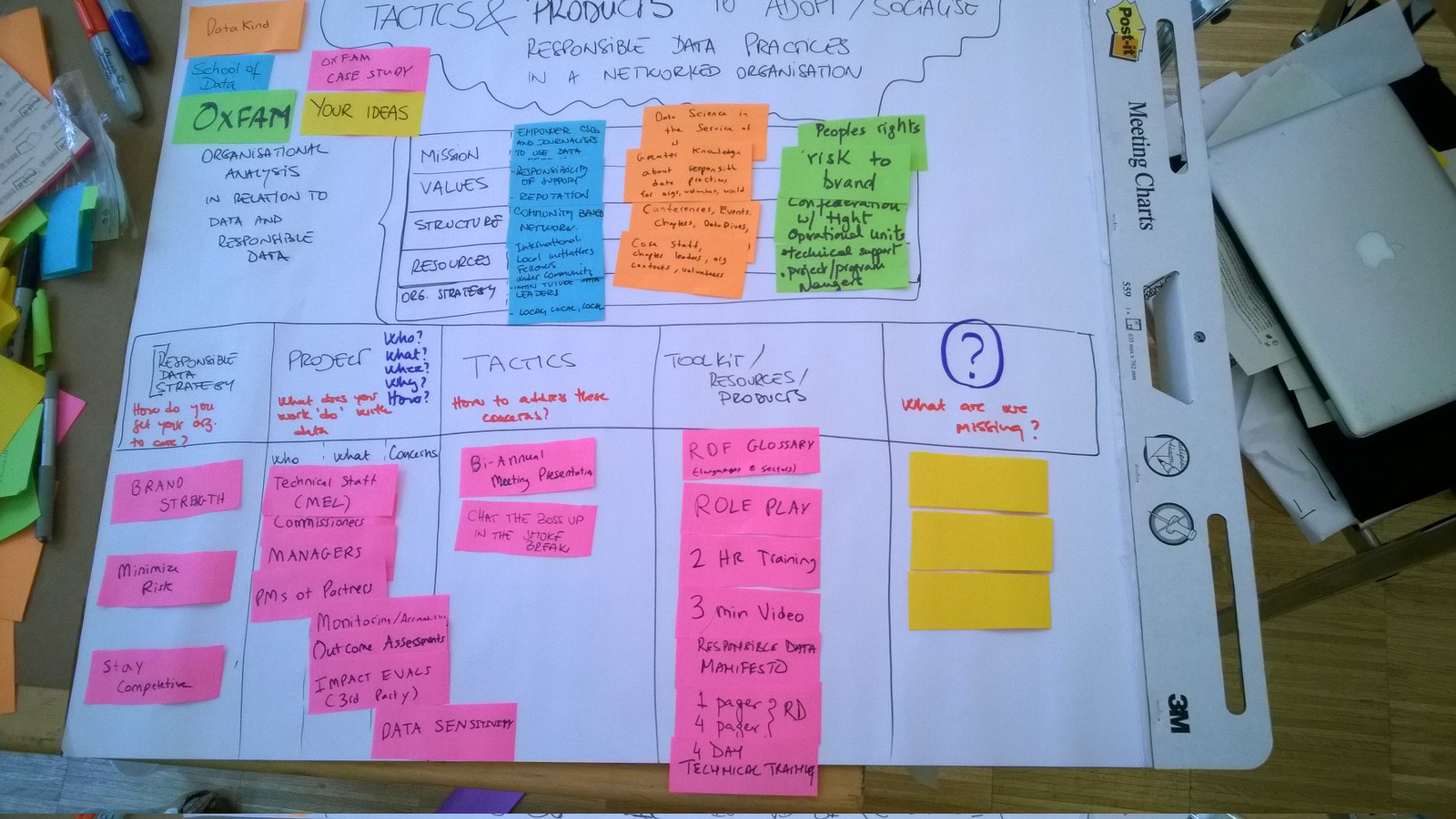Primer on responsible data in development
The final output was a framework for how to sell Responsible Data inside of your organization(s).
Contents
Outputs
The final output was a framework for how to sell Responsible Data inside of your organization(s). See attached photo of the matrix we used which is general, but we then ran case studies through DataKind, School of Data, and Oxfam.
Connection to previous RDFs
Connected to an output from an RDF in New York. This was the original output: https://github.com/tanialee15/Responsible-Development-Data/ for which this group created a primer for.
Notes
We started on Tuesday by putting forward our "constructive selfish" interests in getting out of this session. We then started synthesizing to see how we could all benefit from the sprint together. We all wanted to find ways to communicate importance of responsible data within organizations, and classified our interests into defining "concepts", outlining a "planning" approach, and developing some minimum viable "products" for the end of the sprint. We then did 45 minute sprints on each of these three areas.
For the concepts, we defined actors and key topics. We then cross checked these against other stickies on the wall from previous group activities. We then decided to use Oxfam as a in-depth case study to dig into the "planning" process and ground it in an organizational context.
From that we realized that actually having this in a matrix or table would be a useful output that would help Oxfam for data ethics planning sessions they are having later this week, as well as other organizations represented within our group. We then focused on preparing this matrix in a general sense so it could be applied in any organization, and then dove in and used it for some examples at Oxfam as well as for DataKind and School of Data.
At the science fair we then got quite a few more suggestions which were placed by other RDF friends in yellow stickies in various places across the draft matrix.
Audience
Oxfam was the original target audience for this resource
Next steps
- Load this matrix into an easy digital format which anyone can use
- Continue to test this matrix for Oxfam, DataKind, School of
Data and any others who want to!
- Have the matrix point to
resources that either need to be created (scripts, roleplays, 1 pagers, RDF glossary) or were recently created (manifesto, primer 4 development, elevator pitch)
Contributors
Maliha Khan Baar, T.J. Max Richman
Resources (we <3 links!)
Feel free to link any and all background material, additional info, useful resources, etc. The more the merrier!
